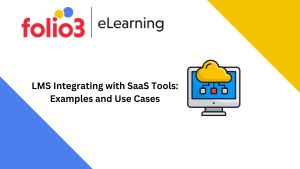
Executive Summary:
With the help of Moodle Analytics, educational institutions may effectively use the data produced by the Moodle learning management system. Moodle Analytics gives educators and administrators valuable insights into students’ conduct, performance, and engagement by utilizing data analytics approaches.
Introduction:
The education sector is not an exception to the massive amounts of data being generated and gathered in the digital age across many other domains. The delivery of courses and interactions with students in educational institutions have been transformed by learning management systems (LMS). Moodle, one of the most well-known and commonly used LMS platforms, has established itself as a pillar of online education by giving teachers a full set of tools for developing, managing, and evaluating courses.
Moodle Analytics, a game-changing technology that enables educational institutions to take advantage of the quantity of data produced by the platform, arises within the Moodle ecosystem. Moodle Analytics gives educators and administrators powerful insights into student behaviour, performance, and engagement using sophisticated data analytics methodologies. This data-driven strategy offers a previously unheard-of chance to improve learning outcomes and make wise judgments.

Leveraging Data for Insights:
Moodle Analytics uses the enormous capacity of data to offer insightful analysis of numerous facets of the educational process. Educators can develop a thorough understanding of student behaviour patterns, learning preferences, and performance indicators by utilizing a variety of data analytics tools. There are numerous advantages and prospects for educational institutions provided by this data-driven strategy.
Analyzing engagement metrics is crucial to using Moodle Analytics data for insights. Data on logins, participation rates, forum activity, and time spent on various learning activities are all available to educators. These metrics can be examined to identify patterns and trends, providing important insights into student engagement, motivation, and interaction with the course materials.
For instance, instructors can find that students repeatedly show little interest in certain subjects or learning activities. Reviewing and revising the instructional design in light of this knowledge can make it more interesting and pertinent for the students. According to instructors, the curriculum can be expanded and deepened in areas where students demonstrate high interest and involvement.
Additionally, the evaluation of engagement indicators can assist in locating students who may be in danger of losing interest or dropping out. Educators can intervene early and offer focused help by monitoring their activity levels and spotting symptoms of falling interest. This proactive strategy can help students stay ahead of the curve while encouraging support and classroom engagement.
Analyzing performance analytics is another part of using data to gain insights. Educators can evaluate students’ progress, grades, completion rates, and assessment results using Moodle Analytics. With the use of this information, teachers may get a clear picture of each student’s academic progress and pinpoint any areas in which they may be suffering or excelling.
Education professionals can develop a thorough understanding of student behaviour, preferences, and learning outcomes by analyzing engagement metrics and performance data. Using data-driven strategies, educators are better equipped to personalize learning for each student and promote academic success. Educational institutions can continuously raise the standard of instruction they deliver and create a more engaging and inclusive learning environment by utilizing the data offered by Moodle Analytics.
Decision-making:
Moodle Analytics offers insightful data on student performance and behaviour and equips teachers and administrators to make well-informed decisions that enhance the classroom environment and support individualized learning.
One of the main advantages of using Moodle Analytics for decision-making is the capacity to spot trends and patterns in student data. Education professionals and administrators can thoroughly understand student behaviour, preferences, and learning results by analyzing the enormous amount of data created within the Moodle LMS. They can use this data-driven approach to decide on instructional tactics, resource allocation, and curriculum design.
For instance, educators might spot areas where students may fail or disengage by looking at engagement metrics and performance analytics. This data can be used to support decisions about changing the curriculum, such as changing the instructional materials, rearranging the topics, or adding more resources to solve the problems that have been found. Teachers may enhance the learning environment and ensure that instructional tactics align with student requirements and preferences using the insights gathered through Moodle Analytics.
Teachers can use Moodle Analytics to conduct data-driven interventions to support underperforming students or challenge high achievers. To address each student’s unique needs, instructors can identify kids who require further support by analyzing performance data. This can entail delivering more resources, offering tutoring sessions, or putting intervention programs specifically designed for each student in place. High-achieving students might benefit from mentorship opportunities, enrichment programs, and advanced coursework. Through these initiatives, schools can become more diverse and individualized, providing kids with the support and obstacles they need to succeed.
Moodle Analytics supports data-informed decision-making at the institutional level in addition to the classroom level. Administrators can assess the efficacy of programs, initiatives, and policies using the information gained through Moodle Analytics. They can pinpoint problem areas, better distribute resources, and make reasoned judgments to improve the educational process as a whole. Education institutions may continuously adjust and improve their practices thanks to Moodle Analytics’ data-driven approach, which improves student results and boosts institutional success.
Conclusion:
Moodle Analytics has become a potent tool for educational institutions to get practical insights and make wise judgments in today’s data-driven society. Utilizing the data produced by the Moodle LMS, educators, and administrators may spot trends, improve learning opportunities, and boost student achievement. Moodle Analytics equips teachers with the tools they need to design individualized learning environments, encourage active participation, and promote a culture of continuous development. Accepting Moodle Analytics is a key first step towards realizing the full potential of learning analytics given the growing importance of data in education.










